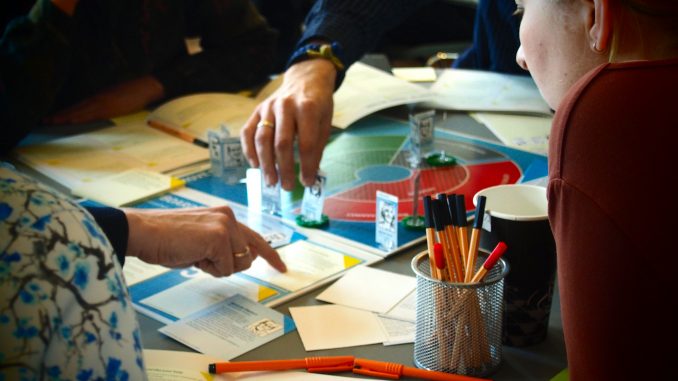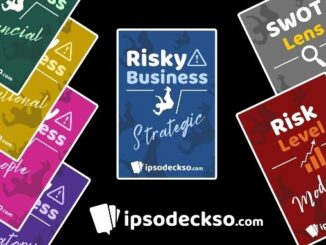
HOW MUST-WIN BATTLES FAIL
In an ever more complex world, large organisations rely on their ability to react or proactively change through large scale strategic initiatives, or as they are sometimes called, Must Win Battles. These could be initiatives such as implementing LEAN, changing production methods or finding new ways to engage customers. Unfortunately, many of these initiatives will, regardless of how great they look on paper, fail due to poor execution or a lack of stakeholder buy-in. Multiple studies1 show that strategic initiatives often fail, because the people who run them have not prioritized the ‘softer side’ of change management such as timely involvement of the necessary stakeholders.
To be better at execution strategic transformations and lead major changes we need to get serious about stakeholder engagement and how we create the necessary support, commitment and empowerment. To be specific, we need a more refined and nuances approach that goes beyond conventual stakeholders mappings, and where we have an professional approach to organizational diplomacy and ‘office politics’. In short, we must expand our change leadership toolbox with inspiration and tools from both negotiation tactics, conflict resolution and influencing.
PLAYING TO WIN
On way to train and refine the critical skills of organization diplomacy and stakeholder engagement is to use game-based training and leadership simulations.
One example is Gamechangers, a board-game based leadership simulation, which focuses on the softer side of managing large strategy initiatives. In a fictive setting, the game lets the participants drive a large scale strategic transformation, and it shows how a large part of the initiative’s success depends on their ability to build coalitions and alignment. It zooms in on the crucial start-up phase, where stakeholder must come together and align expectations, and on the anchoring phase where they need to keep momentum and make the change part of the new reality of the organisation. In order to push through, they must be firm, but they also need to show flexibility in order to secure the right buy-in from key stakeholders.
The leadership simulation provides a safe training environment where the participant can learn from mistakes without jeopardizing real projects, budgets or colleagues. This helps the players to be much better prepared when they have to deliver when it really counts in real life.
TIME TO GO ANALOGUE
Digital tools for training are great for many things but when it comes to the training of refined leadership skills we need to put down the screens and engage face-to-face. IMD, one of the world’s best business schools, are among an increasing number of institutions and companies who use board-game based tools to train leaders and executives. In the words of Robert Hooijberg, Professor of Organizational Behavior: ”The leadership simulations stimulate, as we like to say at IMD, real learning with real impact for our executives.”
Every year new studies confirm that approximately two-thirds of all change projects fail. If your organization can accept these dire odds fine, but if you like to win and deliver, than you need to get serious about the softer side of change management, and in particular the aspect of stakeholder engagement. And for this, game-based training can be an invaluable training tool.
- https://www.mckinsey.com/business-functions/organization/our-insights/how-to-beat-the-transformation-odds
- Time to get serious about Stakeholder Engagement - 17th February 2020





Two really interesting takeaways from this, Ask. First, the power of a well-designed game to allow us to demonstrate, explore and teach behaviours and allow us to try out safely in a simulated setting, different approaches – and to discover the outcomes they deliver. In my experience no two ‘plays’ are ever the same, and the insights that can be delivered are as varied as the experiences that the players bring to the table. I find the simulation approach, as you have, especially valuable in stakeholder engagement. There are so many ways to get it wrong, and usually a much smaller number of ways to get it right. Simulations and games give us the opportunity to keep trying, to make mistakes safely and to learn from those mistakes.
Second, I imagine that you often get involved in conversations, as I do, about whether online or face-to-face games in learning are ‘better’.There are so many things that each do well (I wrote another comment quite recently about how digital games are great for simulations involving KPIs, for example), depending, of course, on the quality of the design, but leadership is a personal skill, and so the analogue approach, where people are in the same room, learning from and between each other is the optimum way to explore those behaviours.